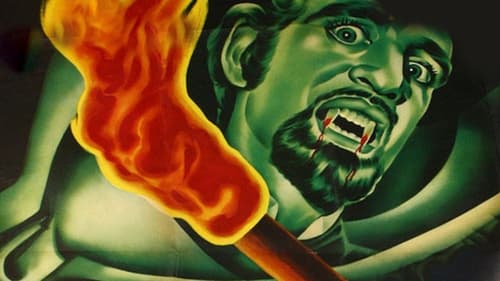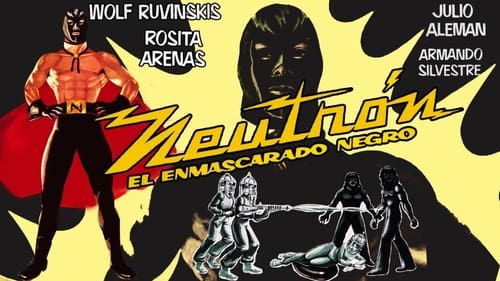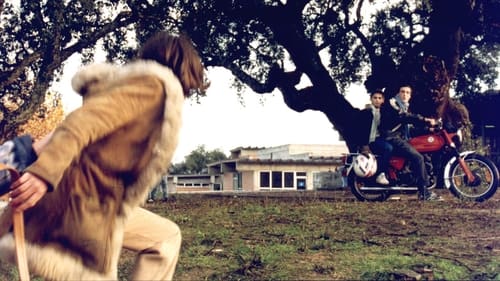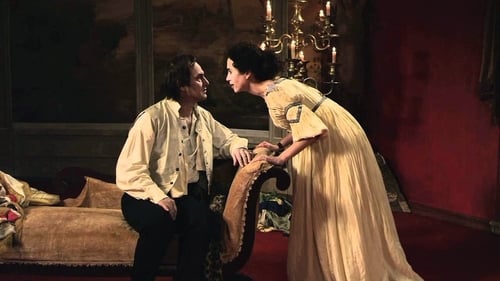The Ethereal Melancholy of Seeing Horses in the Cold (2012)
Genre :
Runtime : 4M
Director : Scott Barley
Synopsis
A silent short, focusing on the beauty and melancholia of seeing horses in the cold fog, and the metaphors that manifest, as time passes.

"Retirement. My retirement. After a long stretch of intense work on a project that I wasn't passionate about, I finally had a little time to make something I truly wanted. Solitude. A subtle use of machinima alongside HD video." Scott Barley

Vicente (Gabino Rodríguez) is a young farmer in a rural village who scrapes by while taking care of his ill grandmother. Several of Vicente’s uncles intend to their ailing mother’s land without her knowledge. Vicente seeks help from the municipal president who, between shooting hoops on a desolate court, tells him that if he wants justice, he must head to the capital to meet with government officials. Although he hasn’t seen her since he was a child, Vicente sets off in search of his mother, who works as a maid in maze-like Mexico City. With the help of his mother’s employer, a sophisticated middle-aged woman, he finds the government offices where he presents his case. His situation isn’t easily resolved, especially since he does not have the deed to his grandmother’s plot of land, and Vicente finds the complexities of the legal system to be completely overwhelming.

"[...] Looking back, I now feel that I understand that the film was my response to the two entities, Man and Nature competing for space in the local vicinity where I lived, ergo layers of images and sounds compete for attention in the film. Where fields used to be, they were being replaced with factories, power stations, and wind farms. My film is an irresolution. Are any of these things beneficial enough to be warranted? Isn't it all a folly? I don't know. It is not a negative film, nor a positive one. Just a comment. A comment that my subconscious commanded me to make; inspired by the locations that I passed... and the locations that have passed. At the end of the film, a human hand reaches out, as if trying to find a resolution, a reason for anything and everything - but everything, even the nature seems so fake now, like trying to feel the flesh of a mere projection..." - Scott Barley

Vampire hunters track down a vampire and attempt to steal the ashes from his coffin in order to stop him from reviving nightly.

Otto Scheidel (Manfred Krug) has been captain of the Elbe steamer Jenissei for over twenty years, but his ship, the last of its kind, is going to be converted into a floating restaurant. Otto, whose his strong attachment to the ship has already cost him his relationship with his girlfriend Caramba (Renate Krößner), refuses to take another job and instead joins a railway construction brigade.

In order to stop a vampire from terrorizing the countryside, some locals decide to break into his coffin at night and steal his ashes. Complications ensue.

Dr. Charon and his group of mad scientists built a neutron bomb with trying to blackmail the free world for global power. But the hero appears, Neutron, who, with the help of Dr. Thomas and reporter Nora spoil those plans.

Minotaur takes place in a home of books, of readers, of artists. It’s also a home of soft light, of eternal afternoons, of sleepiness, of dreams. The home is impermeable to the world. Mexico is on fire, but the characters of Minotaur sleep soundly.
![Bickels [Socialism]](/assets/images/no-backdrop.png)
The ‘Casa do Povo’ cultural centre in São Paulo, an icon of the secular Jewish workers’ movement: a crumbling theatre flanked by staircases, entryways and corridors. Construction noise drones away in the background, clinking crockery, a broom sweeping over tiled floors, an expressive façade of countless adjustable panes of glass covered by a patina. It’s October 2016 and a group of young people are preparing a preview of Bickels [Socialism]. The venue is to form a prologue to the completed film, which tours 22 buildings in Israel designed by Samuel Bickels, most of which for kibbutzim. Dining halls, children’s houses, agricultural buildings, bright structures inserted into the Mediterranean landscape with great ingenuity. An architecture with a sell-by date: That many are now empty or have been repurposed at best is linked to the decline of the socialist ideals they embody.

The City of the Dead, in Cairo, is the biggest necropolis in the world. One million inhabitants live there: in the tomb houses or in the buildings that have grown up around the tombs. We can find bakeries, coffee shops, markets, school for the children, mechanics for the cars. Everything inside the cemetery. The City of the Dead is gigantic but it feels like a small village. Mothers want to marry their daughters, boys keep chasing the girls. These things never change. It doesn't matter if you live in a big city, in a village or in a cemetery.
![Streetscapes [Dialogue]](https://moviedb.kr/index.php/image/w500/2K1nI3Uz37m9o6GbxIIj6FJPb5y.jpg)
A film director confides in his interlocutor. He talks about the working process, about creative blocks, about artistic crises and expressive forces. At some point, the idea takes hold that this conversation could be turned into a film. And this is the very film we’re watching the two of them in.

A West African pig farmer has a religious vision, wherein he is told that he'll be Magloire the First, a prophet of Christ. He then sets out to rid his local villagers of superstition and instead save them for Jesus.

Following international recognition of Fado, Portugal recently submitted to UNESCO the polyphonic songs of the Alentejo, known as Cante Alentejano, or just Cante, as an Intangible Cultural Heritage of Humanity. This film will be a journey into the hot Alentejo countryside (Southern region of Portugal) discovering Cante music and the life of its performers. Not many people outside Portugal know about these a capella polyphonic choirs, typically formed by 20 to 30 male agricultural workers or miners, that seem to express the deep voice of the Earth.

Gloria is set against the backdrop of a rural landscape slowly disappearing in modern Portugal. The small border town of Vila de Santiago, once a booming trade center for illegal trafficking, is about to become a ghost town, as a new motorway is to bypass the city and the railway station is being closed. Its stationmaster, Vincente, is preparing to retire. Many young people have moved out, leaving the children to be brought up by the elderly, including thirteen-year-old Glória and her friend Ivan. Glória's life suddenly changes with the arrival of Vincente's younger brother, Mauro, who has just come out of prison and has some old issues to settle. Mauro begins to charge around the station on his motorbike, while Glória's friendship with Ivan is put to test on account of her attraction to older Mauro.

The film is set in Lisbon, and tells the story of a day in the life of Rita and Paulo, a Portuguese young couple of the 90's. The fast changing city around them makes them wish to break with all traditions and live the day the get married (only civil marriage) like it is an ordinary day.

Roberto is one of those men to whom simulation has become the greatest art. He is an unmoved, inscrutable, mysterious man. But the truth is that Robert feels an intimate, deep tedium. The boredom of those who have already exhausted all the pleasures of life. The only thing still surprising him is the fact that nothing surprises him anymore. One evening he has an overwhelming encounter with a woman. For his own bewilderment, he discovers the sublime horrors in which the woman has sank.

Through a series of interviews and enactments we learn the story of Nico and Amalio, two children who lost a friend while climbing a mountain. Documentary and fiction seamlessly merge creating a hybrid, poetic film.

The lives of two women intersect.

Gabino, Luisa and Paco share a small apartment in Mexico City. With no money and nothing to do they decice to leave the city.

Caleidoscope of documentary-like scenes and re-enacted episodes of a day in the life of a large port town - Lisbon, from the old district around Saint George's Castle down to the docks and the 'Sagres' on the Tagus river, to the new commercial districts.




![Streetscapes [Dialogue]](https://moviedb.kr/index.php/image/w500/2K1nI3Uz37m9o6GbxIIj6FJPb5y.jpg)


